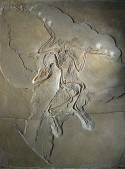Friday Bible Blogging - 2 Kings 21 to 2 Kings 25
This entry is part of a series. For a listing of all entries in the series, go to the Index. Unless otherwise noted, all Bible quotations are from the New Revised Standard Version (NRSV).
 Chapters 21 through 25 mark the end of 2 Kings, and also the end of the Deuteronomistic books (Deuteronomy itself, plus the Deuteronomistic History - Joshua, Judges, Samuel and Kings). Recall that Chapter 17 described the fall of Israel when it was conquered by Assyria. These chapters contain another very significant event - the fall of Judah to Babylon. In contrast to some of the other chapters from Kings, these were actually fairly entertaining, giving a bit more detail on events.
Chapters 21 through 25 mark the end of 2 Kings, and also the end of the Deuteronomistic books (Deuteronomy itself, plus the Deuteronomistic History - Joshua, Judges, Samuel and Kings). Recall that Chapter 17 described the fall of Israel when it was conquered by Assyria. These chapters contain another very significant event - the fall of Judah to Babylon. In contrast to some of the other chapters from Kings, these were actually fairly entertaining, giving a bit more detail on events.
Chapter 21 described the reign of Manasseh, and boy was it bad in the eyes of the writers. Recall that Manasseh followed immediately after his father, Hezekiah, who was described in the highest terms possible, "there was no one like him among all the kings of Judah after him, or among those who were before him." Manasseh, meanwhile, was described in about the worst terms imaginable, "Manasseh misled them to do more evil than the nations had done that the Lord destroyed before the people of Israel." After taking the throne at the young age of 12, Manasseh went on to commit just about every sin against Yahweh you could think of - rebuilding the high places, erecting altars to Baal, making sacred poles, building "altars for all the host of heaven", practicing "soothsaying and augury", consulting with mediums and wizards, making a carved image of Asherah and putting it in the house of the Lord, making "his son pass through fire" (possibly human sacrifice), a vague reference that he "shed very much innocent blood, until he had filled Jerusalem from one end to another", and a few other ones I missed. This disloyalty infuriated God, "therefore thus says the Lord, the God of Israel, I am bringing upon Jerusalem and Judah such evil that the ears of everyone who hears of it will tingle." Yahweh went on to describe how he would wipe out Jerusalem and deliver it into the hands of its enemies. But, in what would be surprising if I hadn't read all of the preceding sections of the Bible, Manasseh himself died peacefully - none of the punishments from Yahweh were delivered in his lifetime, despite the fact that he was supposedly the source of the Lord's wrath. This is just one more example of guilt being transferred to others.
Amon was described briefly at the end of the chapter. He continued in his father's evil footsteps, but was assassinated by his servants. The people of Judah stood by Amon's son, Josiah, making him king and killing all those who were involved in the revolt against Amon.
Chapter 22 was about Josiah's reign, who "did what was right in the sight of the Lord". The description of him started off with him instituting repairs to the house of the Lord. Next came an episode I found pretty interesting. While undertaking the repairs to the temple, the high priest Hilkiah found the book of the law. He gave it tot he secretary, Shaphan, who in turn delivered it to the king, reading it out loud to him. When Josiah heard what was written, he was greatly distraught. He sent his priest and some other servants to "Go, inquire of the Lord for me, for the people, and for all Judah, concerning the words of this book that has been found; for great is the wrath of the Lord that is kindled against us, because our ancestors did not obey the words of this book, to do according to all that is written concerning us." They went to a prophetess who relayed the word of God to them, that Judah was indeed doomed because "they have abandoned me and have made offerings to other gods". But because Josiah was penitent, he would be spared punishment, and would "be gathered to your grave in peace".
I find it a little amusing that the most sacred book in Judah, detailing the Law from God and his covenant with the Hebrews, could have been lost, forgotten in some dusty corner of the temple. It almost makes it seem that in reality, this book of scriptures wasn't all that important. But think about this imagining that all these stories are true - the book had been lost for decades or even centuries. Generations of Judeans had been living in ignorance of the Law, through no fault of their own, but through that of some distant ancestor. But despite their ignorance, God was still going to punish them for committing sins that they didn't even realize were sins. This isn't really the modern conception of a benevolent God.
Josiah went through a period of reformation that sounds even more extreme than Hezekiah's. He read the Law aloud to everyone in the city, renewing the covenant with the Lord. He removed from the temple everything that wasn't supposed to be there - "vessels made for Baal, for Asherah, and for all the host of heaven" and destroyed them. He deposed all the "idolatrous priests", "broke down the houses of the male temple prostitutes", "burned the chariots of the sun with fire", desecrated the high places, etc. He re-instituted the Passover, which apparently hadn't been celebrated since the days of the Judges. He was described in even better terms than Hezekiah, "Before him there was no king like him, who turned to the Lord with all his heart, with all his soul, and with all his might, according to all the law of Moses; nor did any like him arise after him." But these reforms weren't enough appease God and undo the damage done by Manasseh, "Still the Lord did not turn from the fierceness of his great wrath, by which his anger was kindled against Judah, because of all the provocations with which Manasseh had provoked him."
Josiah's reign came to an end when he was killed by Pharaoh Neco of Egypt, in contradiction to the prophecy from the previous chapter. After Josiah's death, the people of Judah anointed his son Jehoahaz to be king, but Pharaoh Neco had other ideas. He confined Jehoahaz, and made Josiah's other son, Eliakim, king instead. And just for good measure, he made Eliakim change his name to Jehoiakim (Jehoiakim also did evil in the sight of the Lord). At this point, it appears that Judah was no longer independent, but a vassal to Egypt, paying silver and gold to the Pharaoh.
The start of Chapter 24 doesn't describe events in as clear of a manner as it could have, but King Nebuchadnezzar of Babylon had taken over much of the land that had belonged to the king of Egypt. This included Judah, and so Judah became a vassal to Babylon. This only lasted for a little while before Jehoiakim rebelled. But after attempting this rebellion, "The Lord sent against him bands of the Chaldeans, bands of the Arameans, bands of the Moabites, and bands of the Ammonites" to wipe out Judah. Just a few verses later, it was reiterated that this was because of "the sins of Manasseh". The chapter also stated explicitly that "the Lord was not willing to pardon" - so much for Yahweh being a god of forgiveness. But the bands of raiders didn't actually wipe out Judah - Jehoiakim died peacefully and was succeeded by his son, Jehoiachin, who also did evil in the sight of the Lord.
Only three months into Jehoiachin's reign, Babylon besieged Jerusalem. Jehoiachin surrendered to Nebuchadnezzar along with his mother and servants, and they were held prisoner. All the treasures from the house of the Lord were carried off, and all but the poorest residents of the city were taken away. Babylon sent new settlers into the land, and Nebuchadnezzar set up Jehoiachin's uncle, Mattaniah, as the king, changing his name to Zedekiah. Zedekiah also did evil in the sight of the Lord.
The final sentence of the chapter noted that Zedekiah began a revolt against Nebuchadnezzar.
Nebuchadnezzar led a siege against Jerusalem. When the city had run out of food, King Zedekiah tried to make a breach in the wall to escape, but he was pursued and captured. His sons were killed in front of his own eyes, before his eyes were gouged out and he was taken as a prisoner to Babylon. The subsequent treatment of Jerusalem was similar to what had been described in the previous chapter, but carried even further - the remaining treasures from the house of the Lord were taken back to Babylon, all the residents except the very poorest were either carried off to Babylon, or executed if they had been particularly close to the king or influential, the buildings of the city were burned down, the city walls were leveled, etc. A man named Gedaliah was appointed as the new governor over Judah, but less than a year later, a group loyal to the old royal family assassinated Gedaliah and those near him (both Chaldeans and Judeans). After the assassination, all of the people fled to Egypt out of fear of retribution. As the New Oxford Annotated Bible (NOAB) pointed out, this brought the grand narrative full circle - from the Exodus from Egypt through the conquering of the promised land, the unified monarchy, the divided kingdoms, and now, finally, back to Egypt again.
The final verses ended in a somewhat promising manner - 37 years after his exile, King Jehoiachin was released from prison, and given "a seat above the other seats of the kings who were with him in Babylon". He was given new clothes, a daily allowance, and treated generally well. This was a hopeful sign that the line of David wasn't completely annihilated.
---
So ends the Book of Kings and the Deuteronomistic history. Taking these books as a whole, from Joshua onwards, they're a mix of real history, legend, myth, and fable. Some parts are rather interesting, particularly when enough time is devoted to a specific segment of history to develop a decent narrative. But other parts can become tedious. This was especially true in 2 Kings, where it seemed that the writers were merely including various kings out of obligation. Their coverage was so superficial that there just wasn't time to become interested in their stories, and the narrative jumped so quickly from one king to the next that it was difficult to become interested in the overall narrative.
It is interesting to contemplate reality versus the Bible stories and how they're related. From outside sources, it seems fairly certain that there was no grand Exodus from Egypt and subsequent invasion of the promised land. Rather, Israelite culture arose inside the promised land, as an outgrowth of Canaanite culture. The initial birth of Judaism was rather non-violent, and more henotheistic* than monotheistic. And those tribes interacted with their neighbors, sometimes peacefully, sometimes violently. As the fate of the tribes waxed and waned, they invented post-hoc rationalizations invoking their god (or plural gods earlier on). And of course, the stories became embellished and modified over generations until they were finally compiled into the scripture that we still have today. There are substantial aspects of truth to these stories as well, particularly the later kings who were closer in time to when the scripture was compiled. But there's also the filter of the scribes' interpretation. Some kings, such as Omri, whom archaeological evidence indicates was very important, doesn't get all that much coverage in the Bible. And keep in mind that the scribes' theology that this interpretation is based on was not necessarily the predominant theology at the time any of these kings ruled. It would be a bit like fundamental Christians writing the history of the U.S. and presenting every politician in light of their adherence to fundamentalist values, even though fundamentalists are not a majority in this country, and didn't really even exist until midway through our country's history.
New Revised Standard Version Bible, copyright 1989, Division of Christian Education of the National Council of the Churches of Christ in the United States of America. Used by permission. All rights reserved.
* I realize that 'henotheism' may not be a term familiar to everybody. It means believing in the existence of multiple gods, but only worshipping one.

 Perhaps my favorite
Perhaps my favorite  Well, it appears that my back and forth with R. K. Sepetjian has come to an end. If you'll recall from a few previous entries(
Well, it appears that my back and forth with R. K. Sepetjian has come to an end. If you'll recall from a few previous entries( I was having a conversation with someone the other day, and the topic turned to the types of things I discuss on this blog. I made a comment along the lines of, 'It's not as if Christians are a persecuted minority in this country', and the other person responded that 'No, they're a persecuted majority'. From my interactions, it seems that this is a relatively common perception. As an example, here's an article from Townhall Magazine,
I was having a conversation with someone the other day, and the topic turned to the types of things I discuss on this blog. I made a comment along the lines of, 'It's not as if Christians are a persecuted minority in this country', and the other person responded that 'No, they're a persecuted majority'. From my interactions, it seems that this is a relatively common perception. As an example, here's an article from Townhall Magazine,  Another month has come and gone, so like I normally do, it's time to look at the server logs to see what pages were most popular last month. Every page that made the list had made it at least once before, so no big surprises. I was happy to see my blog entry,
Another month has come and gone, so like I normally do, it's time to look at the server logs to see what pages were most popular last month. Every page that made the list had made it at least once before, so no big surprises. I was happy to see my blog entry,  I've received another e-mail that's prompted a response on my part (the full text of the e-mail is available below the fold). This e-mail had to do with the U.N. Arms Trade Treaty, and the recent vote in the Senate on an amendment to a budget resolution to try to prevent the U.S. from entering into that treaty.
I've received another e-mail that's prompted a response on my part (the full text of the e-mail is available below the fold). This e-mail had to do with the U.N. Arms Trade Treaty, and the recent vote in the Senate on an amendment to a budget resolution to try to prevent the U.S. from entering into that treaty.